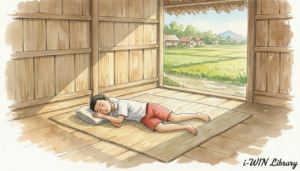The Capacities and Restorative Capabilities of the Law on Handling Juvenile Offenses in Afghanistan

Author(s): Ahmad Ali Sadeghi
Institution: Jahan University
Category: Articles, IJMMU
Topics: Restorative Justice; Juvenile Delinquentsک Juvenile Delinquency Act
Abstract: The prevention of crime, its control, and the response to offenders, as well as the protection of victims and society through a restorative approach, have long been a focus in the criminal justice systems of various countries. This approach emerged due to the inefficiency of repressive criminal systems, preventing the entry of offenders into the formal criminal justice process and avoiding the stigmatization of all offenders, especially children, who are more vulnerable. The Afghan legislator has acknowledged the benefits of restorative justice in several provisions. Article 21 of the Law on Handling Juvenile Offenses grants the prosecutor (Saranwal) limited authority, depending on the type of crime committed, to request the administrators of rehabilitation centers to invite the legal representative of the affected child for reconciliation. Suppose the crime committed by the child or juvenile is considered minor. In that case, the prosecutor has discretion to refer the case to the rehabilitation center administrators and request that they resolve the matter through a fully restorative process. In practice, the rehabilitation center officials invite the parents and families of the children for reconciliation. If both parties agree and the offending child’s family compensates for the damages, the prosecutor retains the case file and releases the child. However, if the crime committed by the child or juvenile is classified as a misdemeanor or felony, the case is processed through the formal justice system. The law allows judges to consider certain elements of restorative justice when issuing verdicts. Articles 35 and 40 of this law reflect a strong potential for implementing restorative justice programs, including requiring apologies and compensation, key components of restorative justice. Additionally, measures such as referral to specialized social service institutions, issuing warnings, court deferrals, conditional suspension of sentences, house arrest, and handing over to parents or legal guardians are among the provisions closely aligned with restorative justice principles. This article, through an analytical review of the Law on Handling Juvenile Offenses, highlights the harms caused by involving children in the formal justice system. It argues that legislators should address existing limitations and adopt a fully restorative approach for all juvenile offenses at every stage of legal proceedings.
Article can be downloaded>> https://ijmmu.com/index.php/ijmmu/article/view/7121







